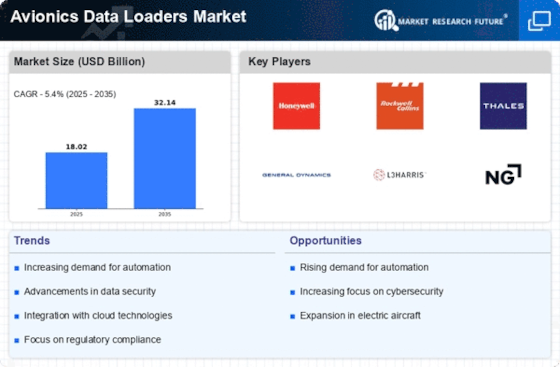Market Trends
Key Emerging Trends in the Avionics Data Loaders Market
The growing emphasis on safety and productivity within the aviation industry is significantly enhancing the recognition and importance of Avionics Data Loaders. This heightened focus on technological advancements aimed at improving safety and operational efficiency is driving an increased demand for Avionics Data Loaders, with several key contributing factors:
Software Upgrades for Enhanced Safety: The aviation sector is committed to enhancing safety through the implementation of software upgrades that refine the operation of avionics systems, address vulnerabilities, and adhere to regulatory standards. Avionics Data Loaders play a crucial role in facilitating these updates, ensuring that aircraft avionics systems remain current with the latest safety features. By providing a secure and straightforward means of software installation, data loaders contribute to maintaining the highest safety standards within aircraft.
Efficiency and Performance Optimization: Avionics Data Loaders enable the efficient loading of performance optimization software and configuration data onto aircraft avionics systems. This capability translates into improved aircraft performance, enhanced fuel efficiency, and overall operational effectiveness. Airlines can tailor avionics configurations to maximize aircraft capabilities, resulting in increased productivity and cost savings.
Ensuring Regulatory Compliance: Regulatory compliance is a paramount concern in the aviation industry, given the evolving safety standards and regulations. Avionics Data Loaders play a vital role in ensuring compliance by facilitating the seamless transfer of updates and configuration files related to regulatory requirements. This capability allows aircraft operators to keep their avionics systems in alignment with the latest regulatory mandates.
Data-Driven Maintenance Practices: The adoption of data-driven maintenance practices is on the rise in the aviation sector. Avionics Data Loaders serve as essential tools for retrieving maintenance-related data, including defect records and performance statistics, from avionics systems. This data is instrumental in identifying maintenance needs, predicting potential issues, and optimizing maintenance schedules. Avionics Data Loaders efficiently transfer this information for analysis and decision-making, ultimately contributing to improved aircraft performance and safety.
Connectivity and IoT Integration: Avionics Data Loaders are evolving to support increased connectivity and integration with Internet of Things (IoT) devices within aircraft. As more avionics systems and components become interconnected, data loaders play a crucial role in managing data transmission between these elements. This evolution facilitates cutting-edge solutions such as real-time data monitoring, predictive analytics, and remote troubleshooting, contributing to advancements in safety and productivity.
In conclusion, the multifaceted role of Avionics Data Loaders in software upgrades, performance optimization, regulatory compliance, data-driven maintenance, and connectivity reflects their growing significance in addressing the safety and productivity demands of the aviation industry.


















Leave a Comment